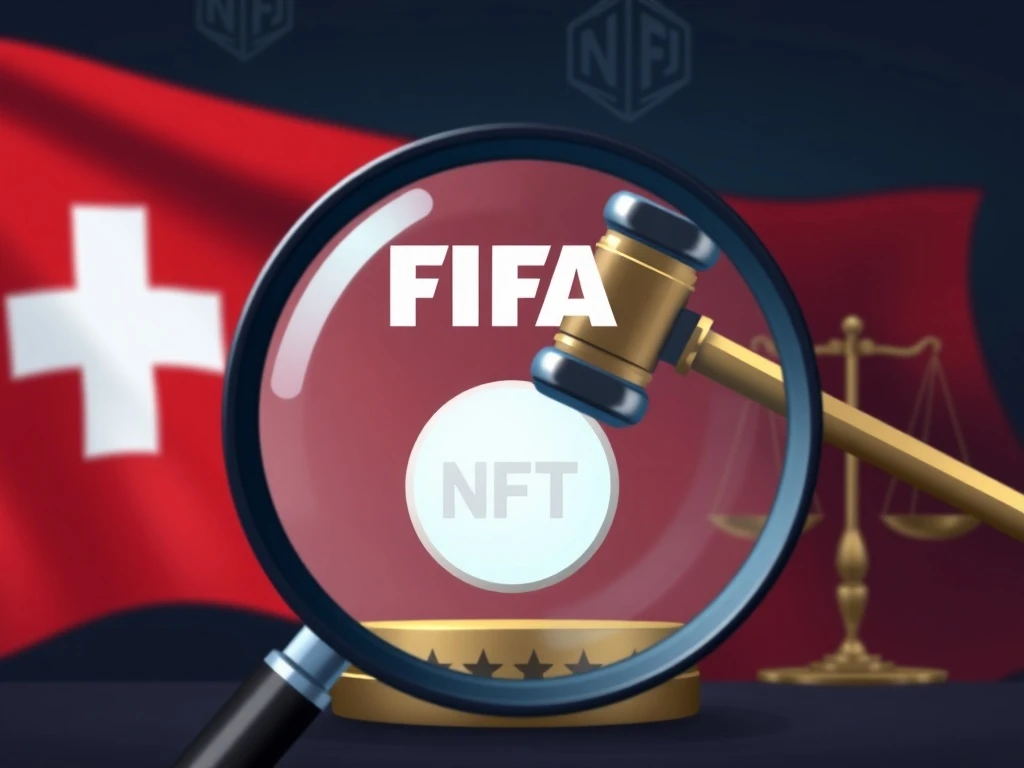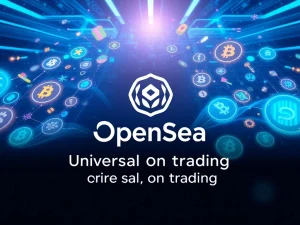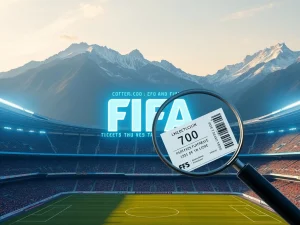Urgent: **FIFA NFT Platform** Faces Swiss Gambling Regulator’s Formal Complaint

The digital world of sports collectibles is facing intense scrutiny. Switzerland’s gambling authority, GESPA, has launched a significant challenge against the **FIFA NFT platform**, FIFA Collect. This action alleges the platform operates as an unlicensed gambling provider. This development underscores the ongoing struggle for emerging Web3 technologies to fit within existing legal frameworks. The complaint from the Swiss regulator could establish a crucial precedent for digital assets and online gaming.
Swiss Gambling Regulator Targets FIFA NFT Platform
Switzerland’s Gambling Supervisory Authority (GESPA), the nation’s primary gambling regulator, has officially filed a complaint against FIFA Collect. This platform hosts non-fungible tokens (NFTs) related to the global football organization. On Friday, GESPA announced its formal complaint. It claims that specific ‘competitions’ on the platform, which include user rewards like airdrop campaigns and challenges, legally constitute gambling under current Swiss regulations. The core issue centers on the inherent ‘element of chance’ in claiming these digital rewards.
GESPA’s statement clarifies its position. It notes, “Participation in the competitions is only possible in exchange for a monetary stake, with monetary benefits to be won. Whether participants win a prize depends on random draws or similar procedures.” From a legal standpoint, GESPA views these offerings as partly lotteries and partly sports betting. Switzerland maintains a strict regulatory environment for gambling. Only two providers, Sporttip and Jouez Sport, are nationally licensed for sports betting. This strict framework directly contrasts with the alleged activities on FIFA Collect.
Unpacking the FIFA Collect Controversy
The **FIFA Collect controversy** began earlier, with GESPA initiating a probe into the platform in October. This initial investigation focused on FIFA Collect’s “Right to Buy” NFTs. These digital assets grant holders ticket reservation rights for the upcoming 2026 FIFA World Cup. Crucially, these NFTs offer the *right*, not the *obligation*, to purchase tickets at face market value. This mechanism aims to prevent price gouging in secondary markets, a common problem at major sporting events.
Many of these World Cup finals reservation NFTs proved highly popular. For instance, NFTs linked to top football teams like Argentina, Spain, France, England, and Brazil were priced at $999. All these high-value collectibles quickly sold out, according to data from FIFA Collect. The platform initially launched in 2022 on the Algorand layer-1 blockchain network. Since then, it has introduced several NFT collections. Interestingly, FIFA has also announced plans to migrate its digital operations. It intends to move to its own dedicated blockchain, named FIFA blockchain, which will operate as a layer-1 subnet on the Avalanche network.
NFT Gambling Regulation in a Nascent Web3 World
This regulatory complaint by GESPA highlights a critical challenge facing the entire Web3 ecosystem. **NFT gambling regulation** remains largely undefined across many jurisdictions. Nascent technologies, including NFTs and broader Web3 platforms, often operate within legal gray zones. Traditional legal frameworks, designed for physical assets or conventional financial instruments, struggle to accommodate these emerging digital developments. Officials worldwide are currently weighing how to integrate these innovations into existing laws.
The core of the issue lies in defining what constitutes ‘gambling’ in a digital context. When digital assets offer a chance-based reward in exchange for a monetary stake, regulators increasingly categorize them as gambling. This situation forces platforms like FIFA Collect to re-evaluate their operational models. It also prompts them to consider the varying legal interpretations globally. The lack of clear, harmonized international guidelines complicates compliance for projects operating across borders. This case will undoubtedly influence future discussions on digital asset legality.
The Broader Implications of the GESPA FIFA Complaint
The **GESPA FIFA complaint** extends beyond just FIFA Collect. It sends a strong signal to other sports organizations and brands entering the NFT space. They must carefully scrutinize their platform mechanics, especially those involving user engagement and rewards. Any feature that introduces an ‘element of chance’ in exchange for monetary value could fall under gambling regulations. This risk exists even if the primary intent is fan engagement or collectible distribution.
For the broader Web3 industry, this regulatory action serves as a crucial wake-up call. It emphasizes the urgent need for robust legal analysis and proactive compliance strategies. Projects must navigate complex regulatory landscapes. They need to understand how their offerings might be interpreted under existing laws. This incident could lead to increased regulatory scrutiny across the NFT market. It might also accelerate the development of clearer legal guidelines for digital collectibles and blockchain-based gaming. Ultimately, clearer regulations benefit both consumers and legitimate businesses.
The Road Ahead for Digital Collectibles and Sports
The outcome of GESPA’s complaint against the **FIFA NFT platform** will be closely watched. It could set a significant precedent for how digital collectibles are regulated globally. FIFA and Modex, the Web3 service provider powering FIFA Collect, have not yet publicly responded to the complaint. Their response, and any subsequent actions, will be pivotal. This situation underscores the evolving relationship between traditional sports, cutting-edge technology, and regulatory bodies. As the digital economy continues to grow, clear legal frameworks become essential for innovation and consumer protection.
This case highlights the imperative for all Web3 projects to engage proactively with regulators. Establishing transparent, compliant operational models is paramount. The intersection of sports, blockchain, and digital collectibles offers immense potential. However, this potential can only be fully realized within a framework of legal certainty and trust. The GESPA action is a stark reminder of these ongoing challenges in the digital frontier.









